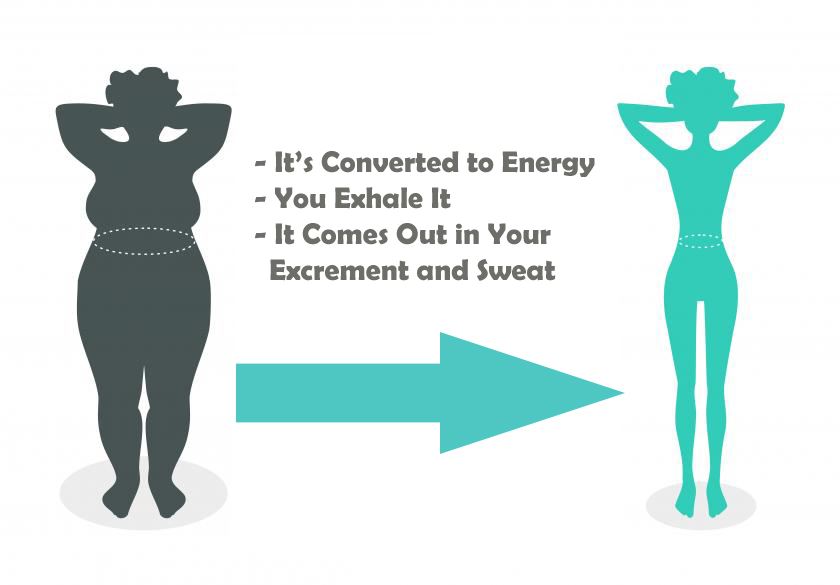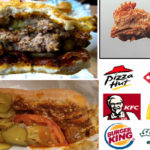Nothing beats a successful weight-loss routine. As you see the numbers on the scale go lower, you’ll begin to notice a thinning around your face, belly, thighs, and other problem areas. With a significant loss, you’ll look and feel like a different person.
 We know that weight loss is the result of your body burning fat, making your fat cells disappear. But when you “lose” the fat, where does it end up? You may have heard different ideas about where fat goes. However, it can’t be attributed to just one component. Usually, the vanishing of fat has three parts.
We know that weight loss is the result of your body burning fat, making your fat cells disappear. But when you “lose” the fat, where does it end up? You may have heard different ideas about where fat goes. However, it can’t be attributed to just one component. Usually, the vanishing of fat has three parts.
It’s Converted to Energy
You often hear weight loss referred to as fat burn. Although your body isn’t literally burning your fat cells, it is an effective way to describe the chemical reaction that occurs when your fat cells are converted into energy. Rather than relying on food to create energy, you’re relying on fat.
“When you lose weight, it’s essentially like you’re eating your own fat,” Louis Aronne, director of the Comprehensive Weight Control Center at Weill Cornell Medicine and NewYork-Presbyterian, told The Washington Post.
This isn’t an appetizing way to look at fat burn, but it’s the reason that cutting calories is so effective. When you expend more energy than you consume, your body uses your fat stores, eliminating some of the cells.
Calorie-cutting and increased exercise is the best way to create this conversion, but you can increase it with the use of supplements. Ephedra, for example, is one of the best fat-burning supplements on the market. It’s been clinically proven to promote weight loss, provide more energy, and improve athletic performance.
Lipodrene Hardcore is another effective fat burner. The primary ingredient is ephedra, and it uses thermogenic and repartitioning agents to eviscerate fat cells and provide energy.
For maximum effectiveness, discuss your supplement options with a doctor. He or she can help you find the most effective capsule or powder to kickstart your fat-to-energy conversion.
You Exhale It
“This surprises just about everyone, but actually, almost everything we eat comes back out via the lungs,” explains an article by Ruben Meerman and Andrew Brown, researchers at the University of New South Wales. “Every carbohydrate you digest and nearly all the fats are converted to carbon dioxide and water. The same goes for alcohol.”
In fact, according to their findings, 84 percent of the fat your body burns is exhaled through the lungs. About 15 percent is converted to water, and the rest is converted into energy that absorbs into your bloodstream and organs.
This information means that you can actually lose weight by inhaling more. To lose a pound of fat, you must inhale about 3 pounds of oxygen. A non-active human being will inhale about 1 3/4 pounds of oxygen per day.
So to burn fat, you need to breathe faster through exercise. As you exercise, you will literally be losing weight with each breath.
It Comes Out in Your Excrement and Sweat
Have you ever lost a significant amount of weight at the beginning of your weight loss journey? After that, your weight loss will probably plateau, and you’ll lose it at a steadier pace. The beginning weight loss is probably water weight.
“The carbohydrates we don’t use right away for energy we store as glycogen,” explains Joanna Sheill DiCicco, a Detroit dietitian told Health. “Glycogen pulls in water, so the more glycogen we are storing, the more water we are taking in. When we are on restrictive diets and at first lose weight quickly, that really is just water weight from the loss of stored glycogen from our muscles.”
As mentioned previously, 15 percent of fat cells are converted to water, which comes out in your urine, excrement, and sweat. Both your fat cells and water retention because inactivity will be expelled through your normal bodily functions.
This is why drinking water and working up a sweat are important for weight loss. It promotes the loss of fat through your urine and puts you on track to a healthier you.








